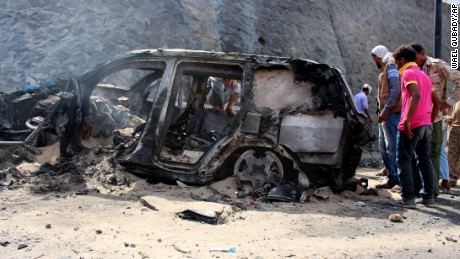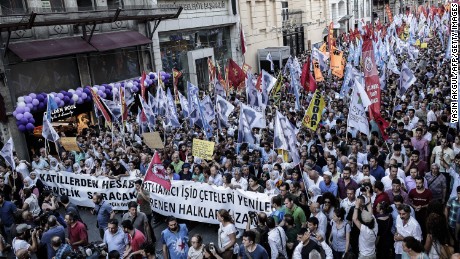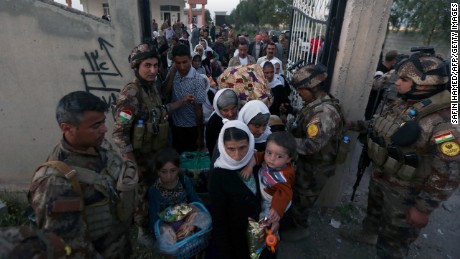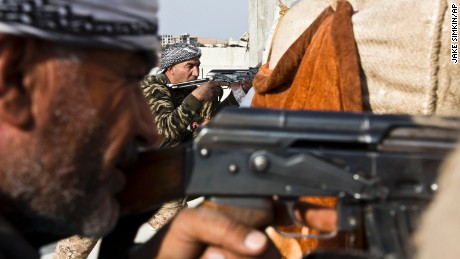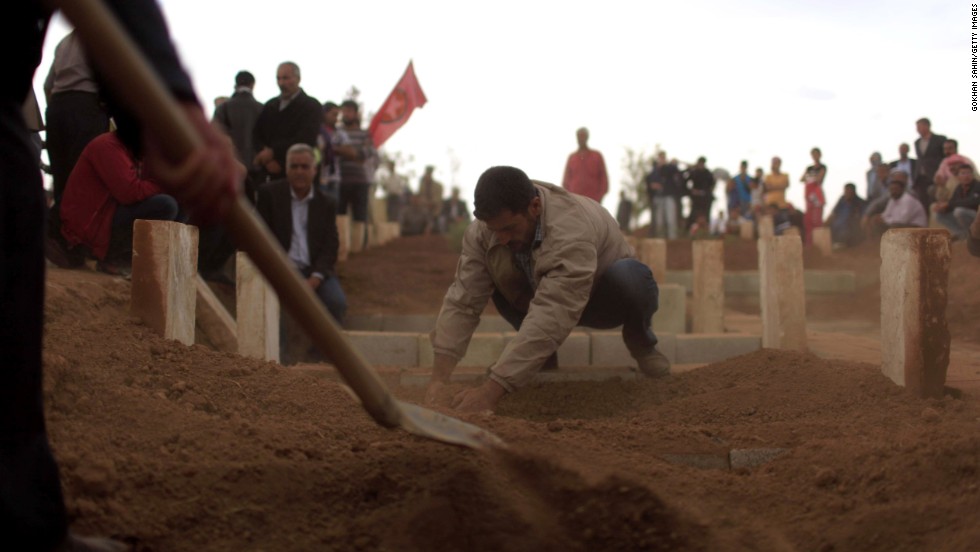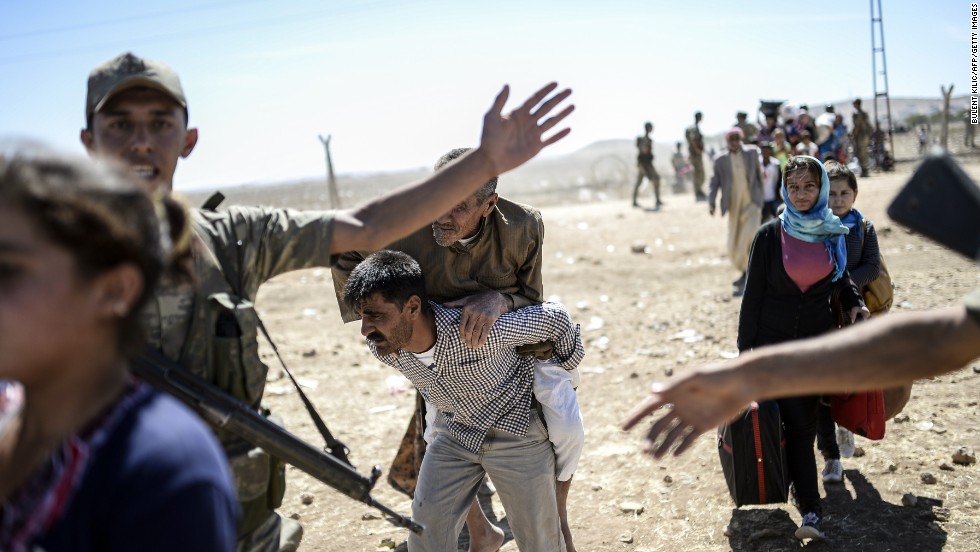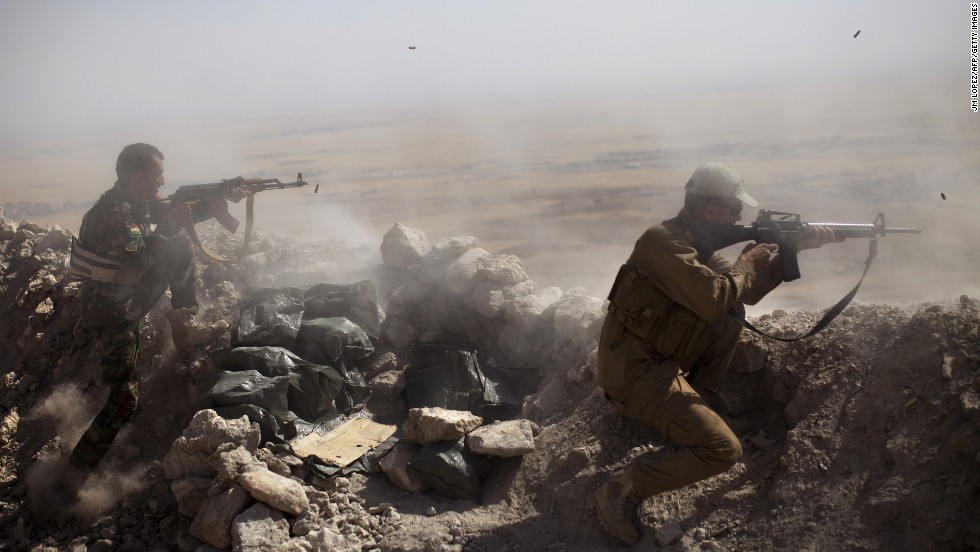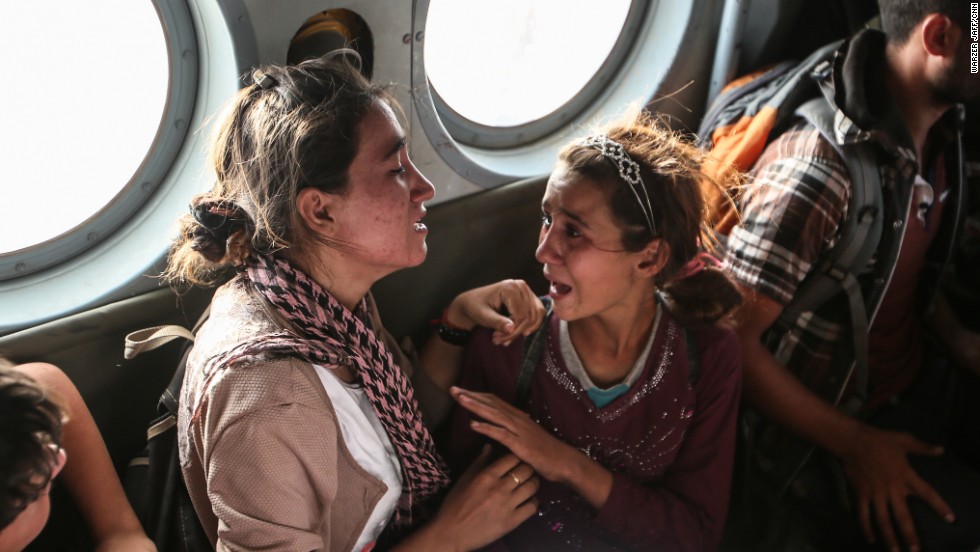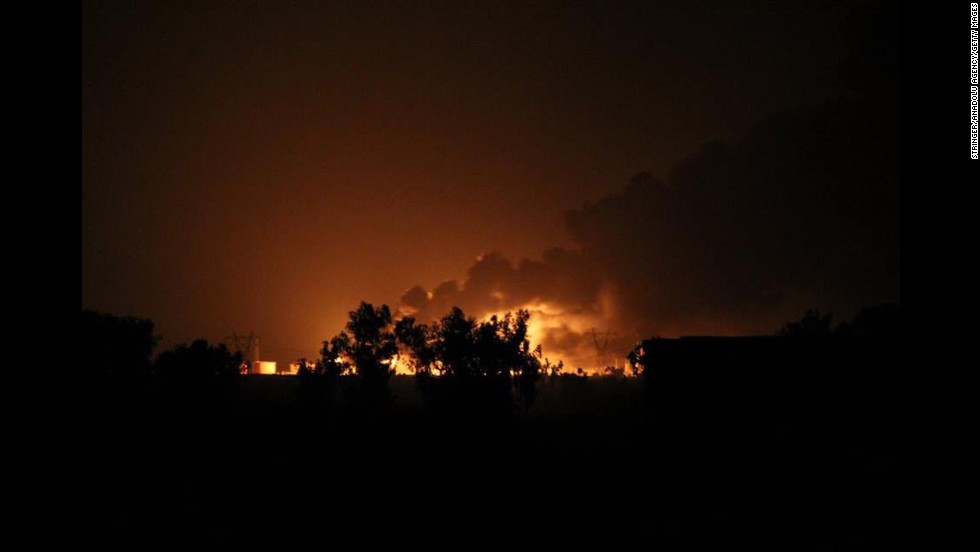Story highlights
- John Kerry says Turkey is on board with coalition fighting ISIS
- President Obama says effort to destroy ISIS will have ups and downs
- Iraqi police captain, sources: ISIS has surrounded one of Iraq's largest air bases
- ISIS continues its assault on Syria's Kobani; coalition fights back with airstrikes
(CNN)ISIS appears to have gained more ground in Iraq.
Islamic State fighters surrounded one of Iraq's largest air bases Tuesday, a police captain in Anbar province and other security sources told CNN. The militants are preparing to launch an attack on Ein Al-Assad military airbase, which is halfway between Hit and Haditha, said Anbar police Capt. Omar Mohamad Hanin.
Anbar has been largely overrun by ISIS, which has been waging war for months in order to establish a caliphate -- or a society run by strict Sharia law. It has also taken over large swaths of Syria, near the border with Turkey.
Coalition forces have been trying to battle back, but ISIS is getting into position in Iraq with rocket launchers and tanks in villages to the south and east of Ein Al-Assad, Hanin said.
President Barack Obama said he is focused on the fighting taking place in Anbar and vowed airstrikes will continue there and elsewhere.
"This is going to be a long-term campaign, there are no quick fixes involved," he said Tuesday at Joint Base Andrews, during a meeting of military leaders from 22 countries who are part of the coalition fighting ISIS.
"We're still in the early stages," the President said. "As with any military efforts there will be days of progress and there will be periods of setback, but our coalition is united behind this long-term effort."
Nearly 60 countries are now part of the effort to stop ISIS.
Two deadly car bombs exploded in Baghdad on Monday and one on Tuesday. The militants claimed they were behind the blasts. One targeted the police checkpoint in the Shiite neighborhood of Khadimiya.
Four people were killed and 12 others were injured when a car bomb being driven by a someone on a suicide mission exploded in an area called al-Utayfia. The target was a security checkpoint at one of the entrances to the predominately Shiite neighborhood, police officials told CNN.
ISIS released a statement on its media site claiming that the al-Khadimiya attack killed a member of the Iraqi Parliament, Ahmad al-Khafaji, who was a member of the Badr Organization, a main Shiite bloc in the government.
On the surface, Badgad remained calm Tuesday, despite ISIS advances from the west. Ali, who sells fish at a market, noted that ISIS has taken control of even more territory since the coalition airstrikes began.
Nearby, Walid, who sells fruit and has two sons in the Iraqi army, said the airstrikes are "like theater."
The Iraqi army's track record in fighting ISIS is not good. It has lost control of Mosul, Iraq's second largest city, and is now struggling to keep control over Anbar.
ISIS advances in Syria
In Syria, ISIS fighters bombed and blasted their way through the strategic city of Kobani. Columns of smoke rose as the sound of gunfire erupted.
Coalition airpower -- aided by Saudi Arabia -- has been focused intensely on Syria. U.S. Central Command said Tuesday that it had bombarded ISIS near Kobani, using bomber and fighter aircraft to fire 21 airstrikes that destroyed two ISIS staging locations, a building, a truck and two vehicles and damaged other ISIS property.
Another U.S. strike near the Syrian city of Dayr az Zawr struck a modular oil refinery and initial indications are that this strike was successful.
The strikes are meant to prevent the extremist Muslim group from resupplying and massing combat power on the Kurdish-held portions of Kobani, Central Command said in a release.
All coalition aircraft used in missions against ISIS departed the space safely, the military said, and analysis of the strikes suggests that they slowed ISIS' advance.
But Central Command warned that "the security situation on the ground there remains fluid" with ISIS attempting to gain territory and beat back the Kurdish military, which is putting up a fierce fight.
Turkey in or out?
The fight for Kobani brings ISIS right to the border with Turkey, but Turkey's contributions to the fight against ISIS remain unclear.
After U.S. National Security Adviser Susan Rice said Sunday that Turkey had agreed to allow the United States and its partners to use an air base and territory for training, Turkish officials said Monday that they had not decided whether to allow use of the Incirlik airbase.
On Tuesday, Secretary of State John Kerry said that Turkey is still committed.
"I mean, Turkey has agreed to host and train and equip people. It certainly has allowed the use of certain facilities, and we don't need to get into the specifics except to say that I don't believe there is any discrepancy with respect to what they will or won't do."
"Kobani is caught in between the United States and Turkey. It's a pawn right now," retired Col. Derek Harvey, the former special adviser to Army Gen. David Petraeus, told CNN's Hala Gorani.
Turkey is still focused on removing Syrian President Bashar Al-Assad and has been fighting it's own battle with Kurdish separatists inside Turkey, Harvey said. Turkey even launched strikes against Kurdish positions within Turkey in recent days, according to its military.
Kobani is an example of the fissures that exist within the coalition about the overall strategic goal, Harvey said.











